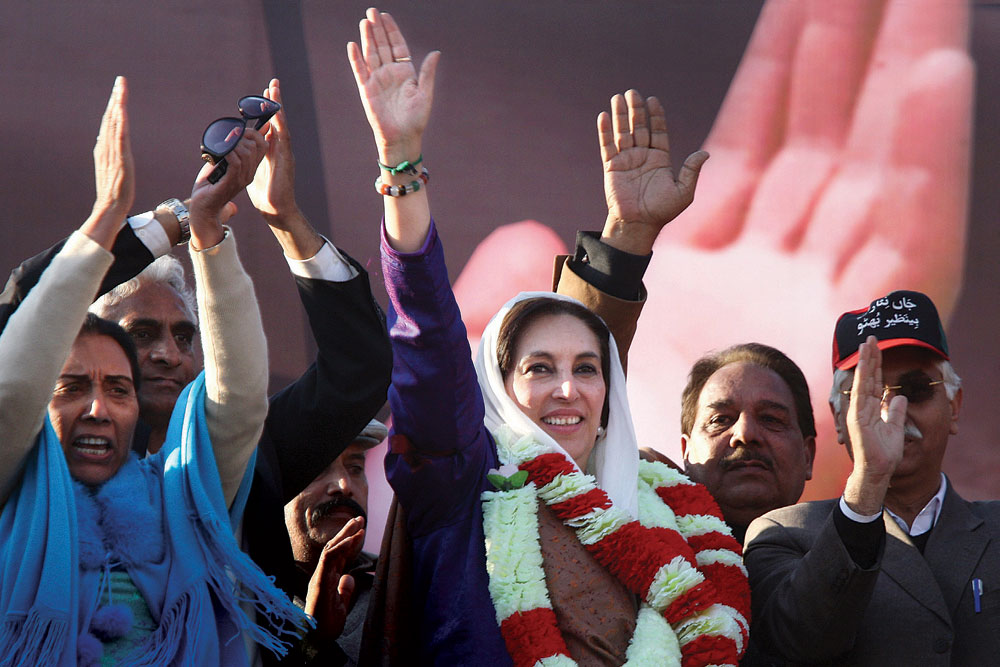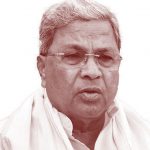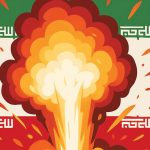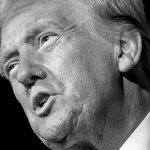The Ideal and the Real
Will Imran Khan be Pakistan’s first Prime Minister to last a full term?
 Mehr Tarar
Mehr Tarar
 Mehr Tarar
Mehr Tarar
 |
24 Jul, 2020
|
24 Jul, 2020
/wp-content/uploads/2020/07/Pakistan1.jpg)
(Illustration: Saurabh Singh)
IS GOVERNMENT a person?
That was one of the first questions that perplexed my mind when I learned to read as a primary school child the Urdu of the newspaper Nawa-e-Waqt. The word was ‘gormint’. It also appeared in daily bulletins of PTV that my dadaji used to watch in our family home in a small Punjabi city, Sargodha. We could set our invisible watches to his entry in my uncle’s room where some of us assembled for the pre-6 PM cartoons.
Some of the most familiar sounds in my childhood were that of Woody Woodpecker’s shrill cackle, Shaista Zaid’s flawless news-reading in her impeccable British English, Popeye the Sailor’s strange baritone, and Azhar Lodhi’s flawless Urdu in the 9 PM main news bulletin. Cartoons and gormint formed a fascinating mix in my life before my precocious mind understood the unique irony of it all.
My first real memory of politics was Zulfiqar Ali Bhutto’s speeches. Without understanding much of what he said, or the connotation of his fiery, passionate oration, I remember watching him riveted once I could focus on things that were not food or playing with my cousins. It was all because of my mother, living in her village, Kolo Tarar, after her separation from my father. My Ami was a Bhutto supporter. All I remember is her saying that Bhutto was “different”, and that he would change things.
In 1977, one of my maternal uncles, one of my mother’s half-brothers, won a National Assembly seat on Bhutto’s Pakistan People’s Party (PPP) ticket. There were fireworks. Everyone stayed up late, happy. Kolo that night was uncharacteristically noisy.
When I was nine years old, General Zia-ul-Haq appeared as the new gormint on television. I didn’t understand what a military coup was, but Zia scared me. He was also the man with the stern face who took away Bhutto’s voice from my mother’s black-and-white Philips TV. That made me sad.
My next vivid memory of politics was Bhutto’s hanging on April 4th,1979. For years, I remembered reading Pakistan Times’ headline, ‘ZA Bhutto hanged, buried in Naudero.’ Did my young mind change the words or was this the exact headline that kept popping up like an indelible sliver of a recurring nightmare in my mind since then, I don’t know. Bhutto was buried in the silence of night. There was no public funeral. I waited. Nothing was shown on Ami’s grainy black-and-white TV screen. Bhutto was gone, Zia was the new ruler, and Pakistan changed, one sombre day at a time.
Zia, like most people in power, did not keep his promises. He promised a better Pakistan. He promised elections. Pakistan was democracy-less. Most of the prominent political leaders were in jail or in exile. Many of them, most notably, PPP leaders, continued to fight for democracy. Bhutto was the martyr of democracy everyone mourned but not many dared to celebrate as the hero that he was to millions of Pakistanis. Unarguably, Zulfiqar Ali Bhutto, to date, remains the most loved politician in the history of Pakistan. He taught the common man to dream. Muhammad Ali Jinnah is the most revered one and would have been the most loved one if he had not passed away in 1948, a year after Pakistan’s creation.
On April 10th, 1986, returning from her exile, Benazir Bhutto arrived in Lahore to a historic welcome. That day, during my second year of college, symbolised hope for a different Pakistan to me. I, like millions of Pakistanis, idolised the 33-year-old Benazir as the idealistic, Oxford-Harvard-educated, brave and beautiful woman who would give us the Pakistan of our dreams shattered by Zia’s nine years of stifling dictatorship.
Zia didn’t hold party-based elections. Pakistan waited for the promised change. Benazir, charismatic and determined, became more and more popular. Nawaz Sharif, one of Zia’s protégés, was the new face in Punjab’s—what do they call them—corridors that zigzag in the complex labyrinth of power in Pakistan. I thought Sharif was dull, and wasn’t popular among the masses, and would not last long in politics. Two of my assumptions were wrong.
Zia was assassinated in August 1988. Pakistan was stunned. I watched, on a colour television, in my family house in Sargodha, the very long transmission of his hugely attended funeral. It was surreal. I felt sad for his family. Funerals do that to me.
In December 1988, after the first real elections since 1977, Benazir became the first female prime minister of a Muslim country. Sitting up all night, clutching a pen and a schoolchild notebook, pages meticulously margined and divided in sections, I jotted down every seat won by the PPP. Benazir was the leader who was going to make Pakistan the country of my dreams. But you know what they say about dreams. Most of them end when you wake up.
Zia didn’t hold party-based elections. Pakistan waited for the promised change. Benazir, charismatic and determined, became more and more popular. Nawaz Sharif, one of Zia’s protégés, was the new face in Punjab. I thought Sharif wasn’t popular among the masses, and would not last long in politics
During the walima reception of a first cousin in Islamabad, a huge do attended by the who’s who of Islamabad, dressed in embellished wedding wear, my plate hurriedly filled with food I knew I wouldn’t eat. Instead of clustering around the bride, I chatted with many people who mostly nodded and grunted at my incessant chatter about what Pakistan needed. One such gentleman was the Pakistan Muslim League veteran leader, Chaudhary Shujaat Hussain. What was and what should be and what could be in the politics of Pakistan was one of my favourite topics, and politicians were my first choice to talk to in any gathering where everyone talked about everything and nothing. The year was 1988. I was 20, and I still held my dreams tighter than the hug of a loved one.
At a dinner in 1989 at the haveli of the socialite Yousuf Salahuddin in Lahore’s old city, I met one of Pakistan’s then most famous politicians, Mustafa Khar. Bhutto’s right-hand man and former governor and chief minister of Punjab, Khar and his brothers were friends of my father. Re-introducing myself, I remember saying to him how amazing it would be if all old, trusted members of Bhutto’s original PPP reunited to help Benazir make her vision of Pakistan become a reality. Khar, ever charismatic, agreed. Bhutto’s old party remained another broken dream, and so did Benazir’s vision of a glorious Pakistan.
Throughout my late teens and until now, discussing politics with politicians—how original—and everyone else I know, remains a constant in my life.
Fast-forward the next nine years: Benazir’s government dismissed in 1990; new elections and Sharif in power; Sharif’s government dismissed in 1993; Benazir back in power after fresh elections; Benazir’s government dismissed in 1996; Sharif’s return as the prime minister in 1997; in 1999, General Pervez Musharraf’s ouster of Sharif’s government; his rule as a dictator-trying-to-be-a-democratic-leader until 2007.
Imran Khan formed his Pakistan Tehreek-e-Insaf in 1996. I loved Khan the cricketer, I respected Khan the philanthropist, but I did not pay attention to Khan the politician. Meeting him in 1991 and later, many times, during his fundraising days for his cancer hospital and later, I thought he was impossibly good-looking, very private, deeply dedicated to building the hospital, passionate about making cancer treatment free for the poor, and unapologetically self-centred. Most of my initial impressions of Khan remained unchanged for years. Or was it decades?
My mother and many of my political memories are intertwined. On October 12th, 1999, sitting with her in my sixth month of a very uncomfortable pregnancy, TV on mute, I noticed that the signals on my mobile phone had vanished. A few minutes later, there was news of Sharif’s ouster and Musharraf taking over—what do they call it—the reins of a fragile Pakistan. Ami and I looked at one another with our stupefied Punjabi exclamations. Hai, aye ki ho gaya? Tauba, hun ki hon laga aye? (Gosh, what has happened? Now what is going to happen?)
A month later, Ami, 60, passed away. It was November 6th, 1999. The unexpectedness of her demise was a pain so great my siblings and I grieved for a long, long time. We still do. Until the world-changing death of my younger brother Babar in March 2019, Ami’s passing was my biggest grief. Babar’s loss is a giant hole in my heart that will close when I am dead.
In two months, my life changed. My son Musa was born on January 26th, 2000. Everything else ceased to exist. The next few years of my life was Musa and only Musa. Twenty years later, it is still Musa and only Musa. Even when he left for college in New York in 2017.
The politics mania became a half-forgotten indulgence.
Benazir Bhutto’s assassination on December 27th, 2007 shook Pakistan. Everyone mourned, even her harshest critics, her fiercest rivals. Eyes fixed on a TV screen, I cried. I did that for days. Not much had changed in the tragic history of the Bhutto family—both of Zulfiqar Ali Bhutto’s sons and Benazir’s brothers, Murtaza and Shahnawaz, were murdered.

What was different now was the 24-hour coverage of Benazir’s last rally, her assassination, the national response, the mourning, the funeral. Zulfiqar Ali Bhutto was buried in the darkness of night. His daughter Benazir’s funeral was attended by hundreds of thousands and watched on television by millions.
Benazir’s PPP won the 2008 elections. Musharraf receded into political irrelevance. The first government in the history of Pakistan finished its term in 2013. So did the second government, headed by Nawaz Sharif, prime minister for the third time, in 2018. Sharif was disqualified in 2017, and Shahid Khaqan Abbasi of his party, Pakistan Muslim league-Nawaz, became the prime minister.
No prime minister has ever finished his or her full term in the entire history of Pakistan. I have written about that very unfortunate reality many times. Now Pakistan is fully democratic. Well, almost.
Imran Khan’s Pakistan Tehreek-e-Insaf came to power in 2018. Khan became the prime minister. In the first time in my many decades of observing the politics of Pakistan, I saw someone other than a general, a Bhutto or a Sharif, come to power. Will Imran Khan be the first one to finish his full term as prime minister? Time will tell.
Despite being pushed to the attic of my completely-inhabited-by-motherhood mind, politics still remained a passion in my life. I followed political happenings of my country, that of the region, and the world through television, newspapers, weeklies, biographies and autobiographies. While taking care of my only child, I often thought about what I used to say to my cousins in Sargodha: that when I’m a grown-up, I want a child and a career. I always thought I would do something important, something that would have the power, even if in a limited capacity, to do good things.
One part of my dreams, the most important part, the indispensable part, is my son Musa. His beautiful smile, his innate kindness, his beautiful heart, his empathetic wisdom—are Allah’s biggest blessings for me. And his constant belief in me pushes me to not give up on my other dream: to do good for people in a way that matters. I try to do what I can.
WHY I STARTED thinking about politics on a humid July morning in Lahore today, rethinking about some key memories of my wide-eyed introduction and limited understanding of politics in my childhood, teens, 20s, 40s, I don’t really know. Perhaps it has something to do with my one week of binge-watching on YouTube videos of primetime talk shows of Pakistan. In a few weeks, in my personal, sometimes hopeless, pursuit for the right answers, I will be hosting my one-on-one interview show on a TV channel. My idealism is not blind to the limitations of the power of strong messaging, of the sincerity to reach people. I know a TV show comes with its packaged boundaries, its glossy no-go areas.
What I wish to do: try. To ask the hard questions, to expect serious answers, to give a platform to a politician, to my guest from any field, to present their point of view, highlight their work, ponder over their mistakes, give a glimpse of their envisioned tomorrow. What I would wish to establish is my tiny world in which my guest knows that there is no fear of demonisation, no gushing glorification, no audacity of enabling and promulgation of lies and propaganda, no cornering in a defendant’s box while the interviewer becomes the judge, jury and executioner, falsely powerful in the glow of a camera while droning on in a microphone, amplified on millions of televisions and computer screens.
Benazir Bhutto’s assassination on December 27th, 2007 shook Pakistan. Everyone mourned, even her harshest critics, her fiercest rivals. Eyes fixed on a TV screen, I cried. I did that for days. Not much had changed in the tragic history of the Bhutto family—both of Zulfiqar Ali Bhutto’s sons andBenazir’s brothers, Murtaza and Shahnawaz, were murdered
Politics and media, in Pakistan, and globally, for a long time, have been in a bizarre union, one clinging to the other for survival. Each takes its power to make or break as an unquestionable entitlement. Their existence is intertwined. Their co-dependence is unapologetic. Their agendas are naked. Their games are overt. Their power is staggering. Their ability to channelise that power to be an instrument of positive change is so little, so fragile, it is that glasshouse that could shatter to smithereens without a notification any day.
Politics holds tremendous value to me because I believe in the power of politics to do unlimited good for the people, for the country. Elected governments are mandated, through the power of vote, to bring a tabdeeli that reshapes a nation, on micro and macro levels. I believe in the power of positive politics based on a set of convictions that are necessary for my country to progress. That set of glorious convictions that becomes the raison d’être of a government that is focused, primarily and ultimately, on doing good for the people of their country. Be it the party in power or those in opposition, positivity and sincerity of intention and action become the difference between those who are in politics to make a change or use it as means for shameless and limitless self-advancement in myriad ways.
My ideal government is the one that is cognizant of and respects the dreams and aspirations of the people. My idea of a solid opposition is that of a party or an alliance of parties that holds the government accountable, that highlights the flaws of its policies and decisions, that backs the government on issues of national importance, and that constantly reminds the government of its duties and promises. A responsible government is essential for a safe today, a dependable tomorrow. A solid opposition is indispensable in any proud democracy.
I see much of my ideal government in the leadership of Prime Minister Imran Khan. But what is missing in his government is the unity among the members of his cabinet. The singlemindedness of his vision is stretched in many directions due to the lack of cohesiveness in the many actions of his team. The intent is good, the work is solid, the direction is delineated. But what is absent is the proper articulation of all that. Khan’s dream of a naya Pakistan is glorious. The optics are not.
The opposition parties, comprising some wonderful and many not-so-wonderful politicians, are embroiled with no clear roadmap and leadership in a short-sighted battle with the government. In the time of the coronavirus, when Pakistan, like the rest of the world, is faced with challenges, human and material, problems cropping up everywhere, enveloping the country in a locust cloud and millions are looking at their government for answers, the opposition is mired in its own survival tactics. Their only form of action is to attack the government even for failures that are non-existent. The good political fight, imperative for the functioning of a vibrant democracy, is now mostly reduced to petty name-calling and ad hominem attacks.
Every night, millions of Pakistanis, bemoaning their limited earnings, inflation and various other issues, watch on their televisions the representatives of government and opposition indulge in mutual sludge hurling. Their fights, despite being condemned, increase the TRPs. The people’s emotions, their hopes, their problems be damned, as long as there is ad revenue. There are some media persons who do their best to be honest to their profession. Many pretend to do so. Most don’t even hide their agendas anymore. The result is a macabre circus every night.
For keeping the government and opposition on their toes, on their guard, on their best behaviour, what is needed is a conscientious, fearless but not reckless, pragmatic and open-minded, fair and non-partisan media. That media is a utopia: it does not exist.
My pursuit for both continues. Good politics and good media. I’m not holding my breath.

/wp-content/uploads/2025/07/Cover_Dalai-Lama.jpg)












More Columns
Alongside Dharavi Recast, Adani Lines Up Goregaon, Malad, BKC Slum Clusters Fast-Fast! Short Post
Land of a Hundred Thousand Welcomes — Just Not for Indians Alan Moore
From Entertainment to Baiting Scammers, The Journey of Two YouTubers Madhavankutty Pillai